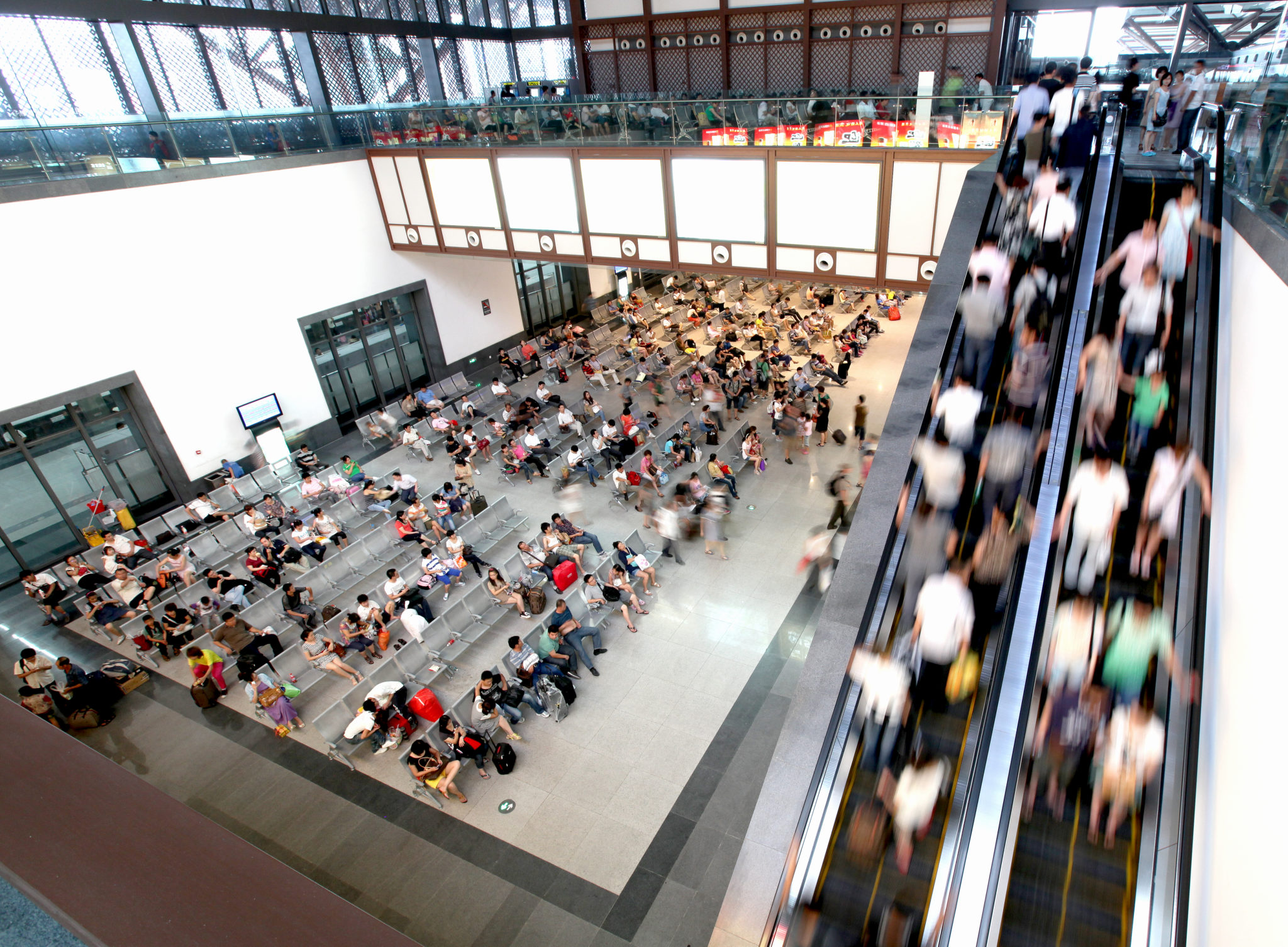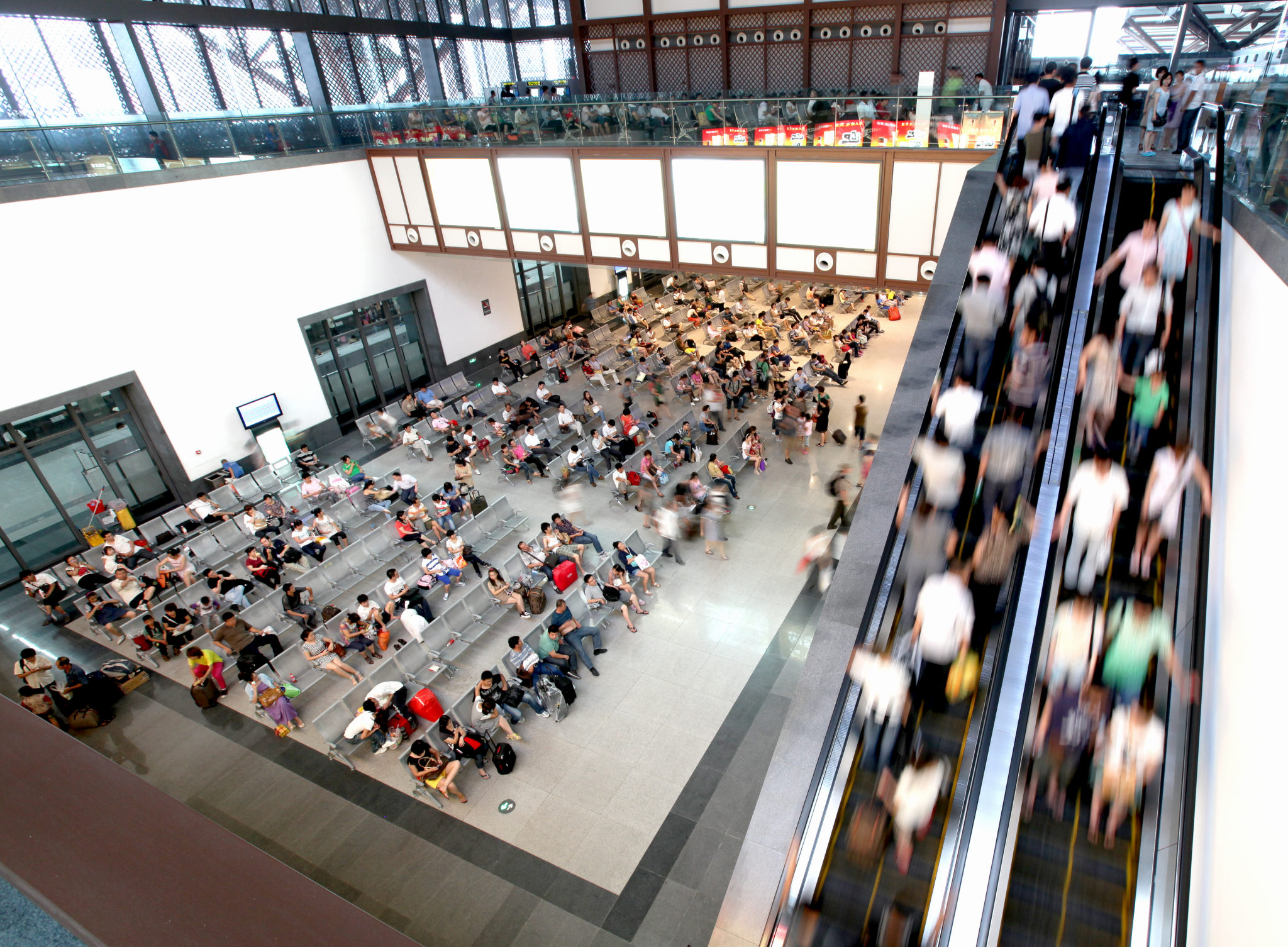Why an increasing amount of Chinese citizens, are travelling abroad more frequently?
As a major developing country, China affects the world in its own way. Progressively, Chinese people are travelling the world and experiencing different cultures. Along with this, a greater amount of international tourists is travelling to China, experiencing different cultures as well. This article will introduce you the characteristics of the Chinese traveller as well as China’s travellers.
In 2013, 97 million Chinese travelled abroad and the Tourism Administration of China predicts that in 2014, the number of international Chinese travellers will surpass 100 million. Today, China has become one of the leaders in the outbound travel sector, and Chinese as well as Japanese account for around 50% of all Asian outbound travellers.
Why is there an increasing amount of Chinese citizens travelling frequently abroad? As a result of the economic growth of China, Chinese citizens have a higher income. The Internet not only allows them to learn about the world but also makes their international trips easier. In addition, many countries have relaxed the visa regulations in order to attract more Chinese travellers, with a lot of low-cost airlines being introduced in order to make outbound trips more affordable.

How do Chinese plan their trips abroad?
In 2014, 67% of China’s outbound travellers made their own travel arrangements. Out of the Chinese citizens who travelled to the APAC region, 77% of them arranged their own trips; 75% who travel to Latin America made their own arrangements; 72% in North America and 65% in Europe.
When the trips are arranged, 55% of them book a hotel through either the computers or mobile apps, with these numbers showing a steady growth. The younger people (under 35) use these online channels more than the older generation (older than 35). Certain features are used to define what hotel is chosen, free Wi-Fi being chosen as the most important. Chinese travellers also want to know if UnionPay cards can be accepted and if hotels offer other mandarin-speaking services, such as in-house mandarin-speaking staff, travel guides and a hotel website.
There are many places for Chinese citizens to choose as destinations. Upon making their decision, safety, cuisine and whether or not there are any historical landmarks were at the forefront of their decision-making. Although other factors are also taken into consideration, such as the value of money, shopping, reputation, ease of visa, weather, accommodation, local culture, political situation, cleanliness, and public transportation systems.
Where do Chinese travellers like to travel and what destinations do they settle upon?
A survey conducted by the Chinese International Travel Monitor indicates the differences between ranks of “where they wish to travel” and “where they actual travelled”. The top 10 dream places Chinese citizens wish to travel are Australia, France, New Zealand, US, Switzerland, Canada, UK, Singapore, Hong Kong and Germany. However, their actions tell a different story. The top 10 places Chinese visit abroad are US, Hong Kong, Thailand, Japan, France, UK, Italy, South Korea, Taiwan and Malaysia.
The average annual household income of the Chinese outbound traveller in 2013 was¥245,729 ($39,784), representing the high-income level population in China. They tend to spend ¥6,707 per day on average, excluding accommodation. The most popular activities Chinese citizens do when they travel abroad are sightseeing, dining and shopping; spending 56% of their budget on shopping, 18% on sightseeing and 14% on dining.
Do Chinese tourists deserve their ‘rude’ reputation abroad?
As a growing amount of Chinese travel abroad, reports of certain incidents were published. For example, in 2013, a Chinese traveller wrote his name on a relief carving in Luxor, Egypt. To prevent “ill manner” a keep a good reputation globally, the NTA (China National Tourism Administration) authorised Chinese travel agencies to blacklist tourists if they have acted in uncivilised ways, such as anti-social behaviour on public transportation, damaging private or public property, and disrespecting local customs.
International Chinese travellers represent the high-income level population, however, the high travel costs may not be affordable for everyone. That is why the number of domestic Chinese travellers is significantly higher than outbound Chinese travellers.
In 2014, China’s citizens made 3,041 million domestic trips and 55.6 million outbound trips. The reasons for this difference relates to the domestic trip costs, which are lower than the outbound trips, along with the convenience of speaking Chinese.
The most popular province for domestic travellers is Guangdong. In 2014, 297.8 million Chinese citizens travelled to Guangdong. The second most popular province is Sichuan, where 276.4 million trips were made in the same year.
China’s inbound tourism: Where do Tourists come from and where do they go?
Not only the Chinese travel domestically, many people travel to China from the all over the world. In 2014, 55.6 million people travelled to China. The majority of this tourist are from Hong Kong, Macau, South Korea, US, Taiwan, Malaysia, Japan and Singapore.
Inbound tourists have gradually changed their destinations from cities like Beijing and Shanghai to second-tier cities, such as Chengdu and Kunming. The reason why is partly related to the fact that big cities like Beijing and Shanghai are far too international, just like other metropolis’ around world. Smaller cities allow international tourists to fully experience local characteristics.
If you enjoy reading this article, follow us for free updates on China’s market. Sign up for our newsletter and follow us on our social media!
#ChineseTourists are younger & tech-savvy, and here’s where they wanted to travel to in 2014 https://t.co/ORt7U63Fci pic.twitter.com/x8INmie2Yp
— Daxue Consulting (@DaxueConsulting) October 22, 2015





